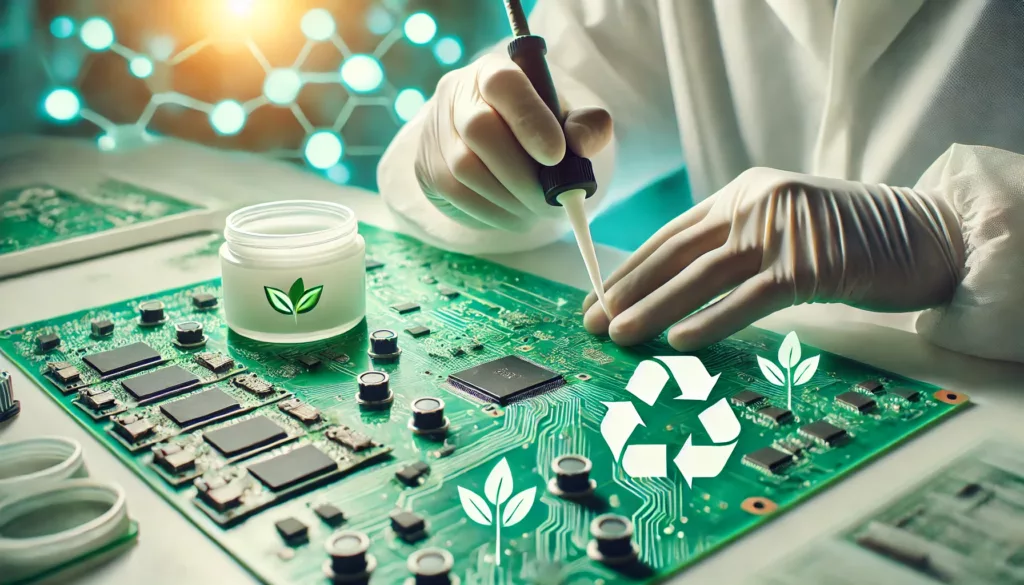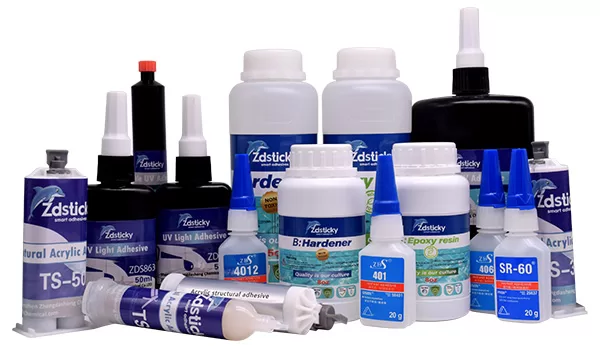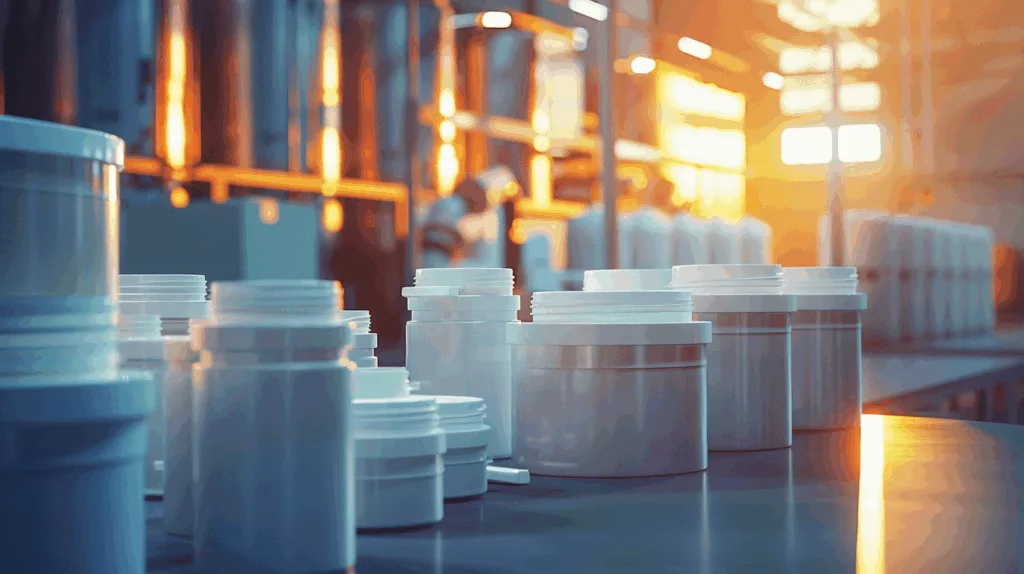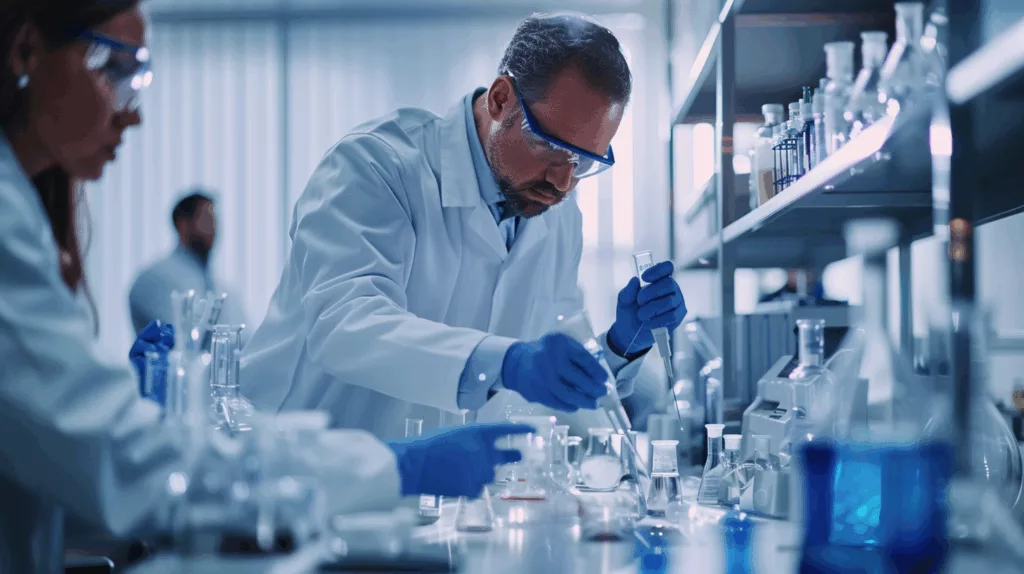Sustainability has become the cornerstone of modern manufacturing, driving industries to rethink their processes and materials. Among the innovations reshaping this landscape, silicone adhesives emerge as a critical component. These versatile materials, celebrated for their durability and flexibility, have taken on an eco-friendly silicone adhesives dimension, significantly enhancing green production processes.
![]()
Introduction: Embracing Green Manufacturing with Silicone Adhesives
Sustainable manufacturing isn’t just a trend; it’s a necessity. Companies are under increasing pressure to adopt materials and methods that reduce environmental harm while maintaining efficiency. Silicone adhesives, known for their chemical stability and adaptability, are now being formulated to align with sustainability goals. Their application spans multiple industries, including automotive, electronics, and construction, making them integral to eco-friendly advancements.
What Makes Silicone Adhesives Eco-Friendly?
Silicone adhesives are lauded for their non-toxic and environmentally benign composition. Unlike conventional adhesives that often rely on volatile organic compounds (VOCs), eco-friendly silicone adhesives boast low emissions. They are free from hazardous chemicals, ensuring safer usage and disposal. Furthermore, their longevity reduces waste, supporting the principles of a circular economy.
Key Benefits of Silicone Adhesives in Sustainable Manufacturing
Durability and Longevity
Silicone adhesives provide unparalleled resistance to extreme temperatures, UV rays, and moisture. This robustness minimizes the need for frequent replacements, reducing waste and conserving resources.
Energy Efficiency in Production
Eco-friendly silicone adhesives often require less energy during application and curing processes. Room-temperature curing options are widely available, cutting down energy consumption significantly.
Enhanced Recycling and Reusability
When used in assembly processes, silicone adhesives facilitate easy disassembly, enabling efficient recycling of components. This property supports manufacturers in achieving waste reduction targets.
Applications of Silicone Adhesives in Sustainable Manufacturing
Automotive Industry
From bonding lightweight materials to sealing electric vehicle batteries, silicone adhesives are pivotal in reducing the carbon footprint of vehicles. Their thermal stability makes them essential in EV production, ensuring safety and performance.
Electronics and Semiconductors
Silicone adhesives are vital in protecting delicate components from environmental stressors. Their eco-friendly variants ensure electronics manufacturing adheres to green standards.
Renewable Energy Projects
In solar panels and wind turbines, silicone adhesives improve durability and efficiency. Their ability to withstand harsh environmental conditions extends the lifespan of renewable energy installations.
Construction and Building Materials
Green construction practices leverage silicone adhesives for bonding and sealing tasks. Their resistance to weathering and reduced VOC emissions contribute to healthier, more sustainable buildings.
Silicone Adhesives vs. Traditional Adhesives: A Sustainability Perspective
| Feature | Silicone Adhesives | Traditional Adhesives |
|---|---|---|
| VOC Emissions | Low | High |
| Longevity | Superior | Moderate |
| Environmental Impact | Minimal | Significant |
| Ease of Recycling | High | Low |
Innovations in Silicone Adhesive Technology
Bio-Based Silicone Adhesives
Researchers are exploring bio-based silicones derived from renewable resources. These adhesives retain the performance benefits of conventional silicones while reducing reliance on petroleum-based materials.
Advanced Curing Techniques
Innovative curing methods, such as UV or moisture-curing systems, reduce energy requirements, aligning with sustainable production practices.
How Silicone Adhesives Support Green Certifications
Many eco-friendly certifications, such as LEED for buildings and ISO 14001 for environmental management, emphasize the use of low-emission, sustainable materials. Silicone adhesives, with their VOC compliance and recyclability, help manufacturers meet these stringent standards.
Challenges in Implementing Silicone Adhesives for Sustainability
While the benefits are clear, transitioning to silicone adhesives can present challenges. High initial costs and the need for specialized knowledge may deter adoption. However, the long-term economic and environmental gains often outweigh these barriers.
Silicone Adhesives in a Circular Economy
The role of silicone adhesives extends beyond single-use applications. Their ability to facilitate component disassembly promotes a circular economy where materials are reused and repurposed, reducing waste and conserving resources.
Future Trends in Sustainable Manufacturing with Silicone Adhesives
Integration with Smart Technologies
Adhesives that can monitor structural integrity or environmental conditions are on the horizon, blending sustainability with innovation.
Increased Focus on Green Chemistry
Manufacturers are investing in greener formulations to make silicone adhesives even more environmentally friendly without compromising performance.
FAQs
What makes silicone adhesives environmentally friendly?
Silicone adhesives are non-toxic, low in VOC emissions, and offer long-lasting performance, reducing waste and supporting eco-friendly practices.
How do silicone adhesives contribute to a circular economy?
They enable easy disassembly of components for recycling and reuse, minimizing waste and supporting sustainable manufacturing goals.
Are silicone adhesives cost-effective for manufacturers?
Although they may have a higher upfront cost, their durability and energy-efficient application often lead to long-term savings.
In which industries are silicone adhesives most commonly used?
Silicone adhesives are widely used in automotive, electronics, renewable energy, and construction industries due to their versatile and sustainable properties.
Can silicone adhesives help achieve green certifications?
Yes, their compliance with low VOC standards and recyclability supports certifications like LEED and ISO 14001.
What advancements are being made in silicone adhesive technology?
Innovations include bio-based formulations and advanced curing techniques that further reduce environmental impact.
Conclusion: The Green Potential of Silicone Adhesives
Silicone adhesives are more than just a bonding agent; they are a key enabler of sustainable manufacturing. From reducing emissions and energy use to supporting recycling initiatives, their eco-friendly properties align perfectly with the demands of a greener future. As industries strive to meet sustainability targets, silicone adhesives stand out as a reliable and innovative solution, proving that durability and environmental responsibility can go hand in hand.











